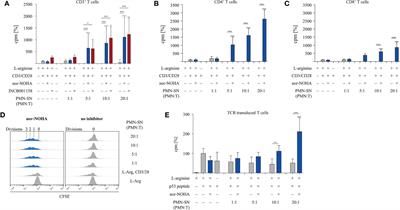EDITORIAL
Published on 05 May 2021
Editorial: Immunosuppressive Amino Acid Catabolizing Enzymes in Heallth and Disease
doi 10.3389/fimmu.2021.689864
- 1,365 views
- 5 citations
16k
Total downloads
63k
Total views and downloads
EDITORIAL
Published on 05 May 2021
ORIGINAL RESEARCH
Published on 26 Feb 2021

ORIGINAL RESEARCH
Published on 19 Feb 2021

ORIGINAL RESEARCH
Published on 04 Dec 2020

REVIEW
Published on 28 Sep 2020

ORIGINAL RESEARCH
Published on 18 Aug 2020

ORIGINAL RESEARCH
Published on 17 Mar 2020

